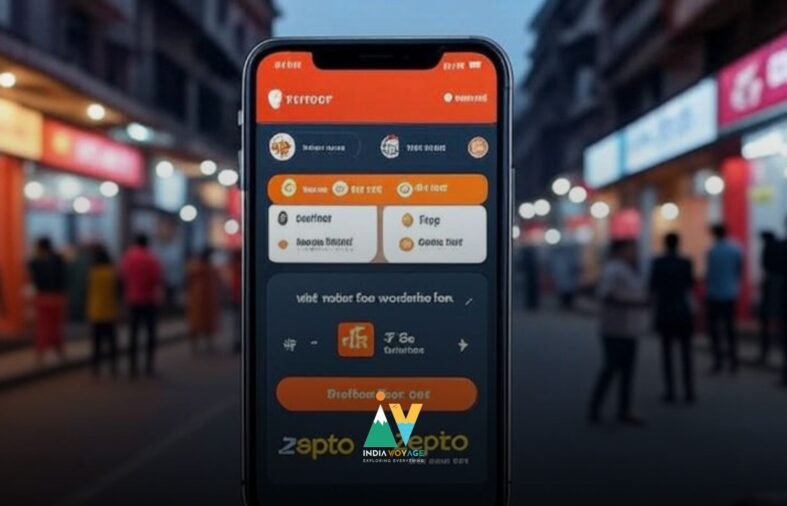In India’s fast-moving digital age, food delivery giants like Zomato, Swiggy, and Zepto promise convenience at your fingertips—delicious meals delivered in minutes with jaw-dropping discounts. But are these deals too good to be true? Mounting complaints suggest these platforms may be luring customers into a trap of hidden costs, broken promises, and questionable practices. It’s time to uncover the unsettling truth behind those tempting offers.
The Mirage of Mouthwatering Deals
Who hasn’t been drawn in by a “Buy One, Get One Free” banner or a “60% off” flash sale? Yet, many customers find their excitement fades when the bill arrives. Social media platforms like X are flooded with stories of sneaky fees—delivery surcharges, service costs, or inflated “packaging” charges—that wipe out promised savings. Some users claim menu prices are quietly jacked up to make discounts seem bigger than they are. A 2019 analysis revealed how these apps tweak pricing to protect their profits, leaving you paying more than you bargained for.
Orders Lost in Limbo
Picture this: you’re starving, tracking your order, and the app insists it’s “almost there”—but it never arrives. X users have shared horror stories of non-delivered meals, with platforms like Swiggy allegedly refusing refunds for incomplete or missing orders. One customer described waiting hours for a meal, only to be told cancellation wasn’t an option. These aren’t one-off glitches; they point to a pattern of unreliable service that leaves customers hungry and frustrated.
Health Risks Behind the Hype
Those glossy food photos on your app might hide a grim reality. Posts on X have accused companies like Swiggy of sourcing food from unhygienic kitchens, with some users reporting spoiled or substandard meals. A 2024 legal action against Zomato claimed the platform misled customers about delivering “fresh” food. As startups race to meet impossible delivery timelines—like Zepto’s 10-minute grocery boasts—are they sacrificing safety for speed?
Unfair Practices Under Scrutiny
The trouble doesn’t stop with customers. Restaurants and distributors are pushing back, accusing Zomato, Swiggy, and Zepto of strong-arm tactics. Antitrust lawsuits filed in 2024 allege these platforms impose steep commissions—sometimes 30% or more—forcing restaurants to raise prices, which you end up paying. Forced discounts and anti-competitive practices hurt small businesses and inflate costs, making those “deals” less sweet.
Tricked by Clever Design
Ever felt rushed to order because a deal was “ending soon”? That’s no coincidence. These apps reportedly use shady design tricks, known as dark patterns, to manipulate you. From fake countdown timers to hidden fees buried in fine print, platforms like Swiggy One promise perks like free delivery but slap on extra charges elsewhere. Zepto has faced accusations of charging different prices for identical items based on user profiles. These tactics aren’t just annoying—they’re designed to exploit your trust.
Why Is This Happening?
The cutthroat race for market share and investor funding is driving these startups to desperate measures. Promises of lightning-fast delivery and endless discounts stretch their operations thin, leading to compromised quality and transparency. While Zomato and Swiggy denied antitrust allegations in 2024, insisting their practices are above board, the flood of customer complaints tells a different story. Regulatory bodies like the Competition Commission of India are investigating, but change is slow, and your wallet can’t afford to wait.
Take Control Before It’s Too Late
Don’t let these apps turn your cravings into their cash cow. Here’s how to protect yourself:
- Scrutinize the Bill: Always check for hidden fees before paying. Compare the final cost to the advertised deal.
- Hold Them Accountable: If your order is late, missing, or unsafe, demand a refund or file a complaint with consumer forums like Jago Grahak Jago.
- Raise Your Voice: Share your experiences on platforms like X to warn others and pressure companies to act.
- Go Local: Order directly from restaurants to skip platform fees and support small businesses.
The convenience of food delivery apps is tempting, but at what price? Behind the slick interfaces and bold discounts lies a troubling pattern of deception. The next time you see a “limited-time offer,” ask yourself: is this a deal, or a scam? Demand better—your money, health, and trust are on the line.











Leave A Reply